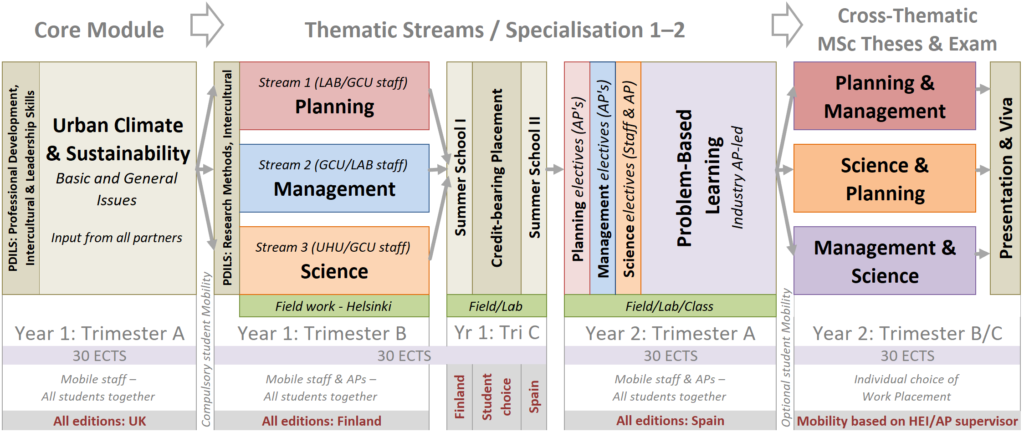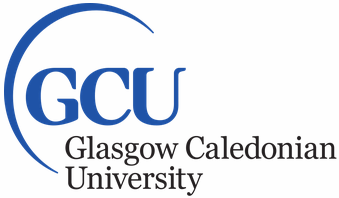Last updated on January 11th, 2025
Mobility of both students and staff is instrumental to a rich learning experience and is a key added value to the already well-established postgraduate education pathways at partner institutions. MUrCS offers a range of mobility experiences under different educational, professional, geographical, socio-cultural and language environments along the study path. The overall objective of creating a new skill/profession by integrating knowledge to manage the complex task of leadership in Urban Climate and Sustainability makes interactions between the streams necessary throughout the whole course. Even if students focus on their respective specialisms during different parts of the programme, the cohort is kept together as much as possible, to encourage cross-subject activities – crucial for an integrated approach. This will be further strengthened by the continuity of the transverse skills modules.
This philosophy underpins the innovative system of mobility, described below.
MUrCS+

Each intake is structured as follows:
- Trimester 1:A at GCU in Glasgow, starts with core modules, common for all students and offered with the participation of partners and selected experts. This semester also includes research methods and transverse skills (professional orientation) blocks. At the end of this semester the students will choose their Primary specialisation stream.
- Trimester 1:B takes place at LAB in Finland for all students. This semester includes core or elective modules (different for each stream)
- Trimester 1:C starts with first part of Summer School in Finland. Thereafter, student placement/internship at partner’s workplaces, and second part of Summer School in Spain.
- Trimester 2:A is an integrated, problem-based learning block, built around our Associated Partners’ core areas, and takes place at UHU in Spain for all students. The individual studies should here broaden into a second Specialisation.
- Trimester 2:B/C is devoted to thesis work at the partner institution best aligned with the primary specialism. This work will be supervised by two teachers from different institutions reflecting students’ primary and secondary specialisms. It is also possible to conduct the thesis research work at one of the Associate Partner Universities. Finally there will be an Exam block with presentation of the theses.
MUrCS consortium is supported by Associate Partners; universities and Industry/Public Sector bodies, bringing in subject-specific specialist knowledge and regional expertise. Industry/public sector bodies enable a problem-oriented blended learning approach and bring working life perspectives. The academic partners will be the principal points of contact in the selected target regions to help contextualise the MUrCS curriculum to regional realities. Guest lecturers will be invited from among Associate Partner staff to enhance regional relevance and contextualisation of the MUrCS curriculum.
Thus, a MUrCS graduate will have earned a total of 120 ECTS, whereof;
- Basic modules: 30 ECTS,
- Core modules: about 45 ECTS,
- Elective modules: at least 15 ECTS out of about 65 ECTS available,
- Thesis, integrating the student’s primary and secondary specialisms: 30 ECTS.



